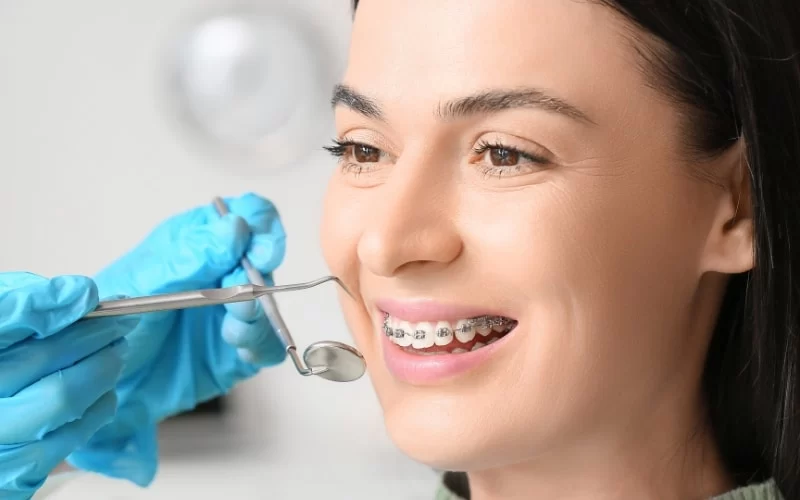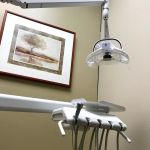
Why Timing Matters When Getting Braces
As someone who has personally gone through the process of getting braces, I can attest to how important it is to choose the right time for treatment. When I first started looking into braces, I wondered if I was too old, too young, or if I should have done it sooner. Over time, I learned that there’s no one-size-fits-all answer, but there are certainly ideal times in life to start your orthodontic journey. In this article, I’ll share my experience and break down the best time to get braces, whether you're a teenager or an adult, and why timing truly matters for achieving a perfect smile.
1. The Best Time for Teens: Early Intervention
For most people, the best time to get braces is during their teenage years. I can remember how many of my friends in middle and high school got braces, and I was no exception. The reason why adolescence is considered the optimal time for braces lies in the growth stage of the teeth and jaw. During the teenage years, your teeth and jawbones are still growing, making it easier to correct alignment issues.
As I went through this stage, I learned that starting braces at a younger age allows orthodontists to address issues like crooked teeth, overbites, and underbites while the bones are still developing. Early intervention can also reduce the need for more invasive treatments later in life. For most teens, the ideal time to start braces is between the ages of 10 and 14, though this can vary depending on individual development.
Why Early Treatment Can Be Beneficial
Starting braces during adolescence provides several key benefits:
- Faster results: Since the teeth and jaw are still growing, treatment can be quicker compared to adults.
- Less invasive: Teens may not need additional surgeries or complex procedures.
- Better long-term results: Early intervention can lead to more stable and lasting changes in alignment.
When I got braces at 14, I felt a little self-conscious at first, but looking back, I’m so glad I did it. My teeth are straighter, my bite is better, and I avoided more complicated procedures later on.
2. For Adults: It’s Never Too Late
As an adult, I used to think that braces were only for teens. However, I quickly realized that adults can benefit from orthodontic treatment just as much as teenagers can. In fact, many adults choose to get braces later in life, whether for aesthetic reasons or to correct long-standing dental issues. If you’re an adult considering braces, don’t worry about being "too old"—modern orthodontics has made it more accessible and comfortable than ever before.
Braces for Adults: What’s Different?
While the best time to get braces is often during childhood or adolescence, adults can still achieve amazing results. However, there are some key differences when it comes to braces treatment for adults:
- Slower progress: Adult bones are no longer growing, so the process may take a little longer than for teens.
- Increased risk of gum issues: Adults may have more gum sensitivity or other dental health issues that can impact treatment.
- Clear braces options: For adults who are concerned about appearance, there are now many options for clear aligners or ceramic braces.
When I decided to get braces in my late 20s, I was nervous at first about how I would look, especially in a professional setting. But I found that with options like clear braces or Invisalign, I could straighten my teeth discreetly. In fact, many adults choose to wear clear aligners to avoid the more noticeable metal braces.
3. Ideal Age for Braces: When Should You Start?
The ideal age for getting braces depends on the condition of your teeth and your orthodontist’s recommendation. For most people, the most effective time to get braces is during the years when the teeth are still developing—usually between ages 10 and 14. However, that doesn’t mean you should rush into treatment. It’s essential to have a thorough consultation with an orthodontist who can evaluate your dental needs and help you determine the best course of action for your situation.
Factors to Consider Before Getting Braces
Before deciding on the right time for braces, it’s important to consider the following factors:
- Teeth alignment: Your orthodontist will assess how much misalignment is present and determine the best method for correction.
- Growth potential: For younger patients, the orthodontist will evaluate how much more the teeth and jaw can develop, making treatment more effective.
- Gum health: Healthy gums are crucial for successful orthodontic treatment. If you have gum disease or other dental issues, these need to be addressed first.
In my case, my orthodontist noticed that my bite was a little off and that my teeth weren’t coming in straight. After some initial scans and x-rays, we decided to move forward with braces, and I saw incredible improvement. It’s important to keep in mind that everyone’s dental development is different, and your orthodontist will guide you through the best time for your treatment.
4. What If You Wait Too Long to Get Braces?
One question many people ask is whether waiting too long to get braces can cause complications. While it's ideal to get braces early, it’s never too late to correct your smile. However, delaying treatment can lead to more complex issues, such as:
- Increased treatment time: As an adult, treatment can take longer since your bones are no longer growing.
- More severe dental issues: Long-term misalignment may result in tooth damage, gum recession, or jaw problems.
If you’ve waited until adulthood, don’t be discouraged. Many adults successfully undergo orthodontic treatment with great results. The important thing is to consult with an orthodontist to determine the best plan for your needs, regardless of your age.
5. My Personal Experience: Deciding to Get Braces
I was initially hesitant to get braces as an adult, thinking it might be too late for me to see meaningful results. But after speaking with my orthodontist and realizing the long-term benefits, I decided to go for it. I chose clear braces because they were less noticeable, and I was able to continue with my work and social life without feeling self-conscious. After about 18 months, my teeth were straighter than I ever imagined, and I could smile confidently.
If you're unsure about the best time for braces, don't hesitate to consult with an orthodontist who can help you make the right decision based on your unique situation. Whether you're a teenager or an adult, it's never too late to achieve the smile you've always wanted!







 Maine Orthodontics5.0 (2 review)
Maine Orthodontics5.0 (2 review) BGW Dental Group4.0 (292 review)
BGW Dental Group4.0 (292 review) Brace Busters3.0 (2 review)
Brace Busters3.0 (2 review) West Coast Dental of Gage3.0 (1043 review)
West Coast Dental of Gage3.0 (1043 review) Steven J. Moravec, DDS, MS4.0 (189 review)
Steven J. Moravec, DDS, MS4.0 (189 review) Babylon Dental Care4.0 (388 review)
Babylon Dental Care4.0 (388 review) The Importance of Oral Health Education During Pregnancy for a Healthy Pregnancy
The Importance of Oral Health Education During Pregnancy for a Healthy Pregnancy Best Tips for Brushing Your Teeth Properly for Healthy Gums: Essential Techniques for Oral Health
Best Tips for Brushing Your Teeth Properly for Healthy Gums: Essential Techniques for Oral Health Why Skipping Dental Checkups Can Lead to Bigger Oral Health Problems
Why Skipping Dental Checkups Can Lead to Bigger Oral Health Problems Advantages of Porcelain Dental Restorations
Advantages of Porcelain Dental Restorations How Can Diabetes Cause Tooth and Gum Problems? Preventing and Managing Oral Health Issues
How Can Diabetes Cause Tooth and Gum Problems? Preventing and Managing Oral Health Issues Healthy Habits for Promoting Good Oral Health and Hygiene: Tips for a Healthy Smile
Healthy Habits for Promoting Good Oral Health and Hygiene: Tips for a Healthy Smile